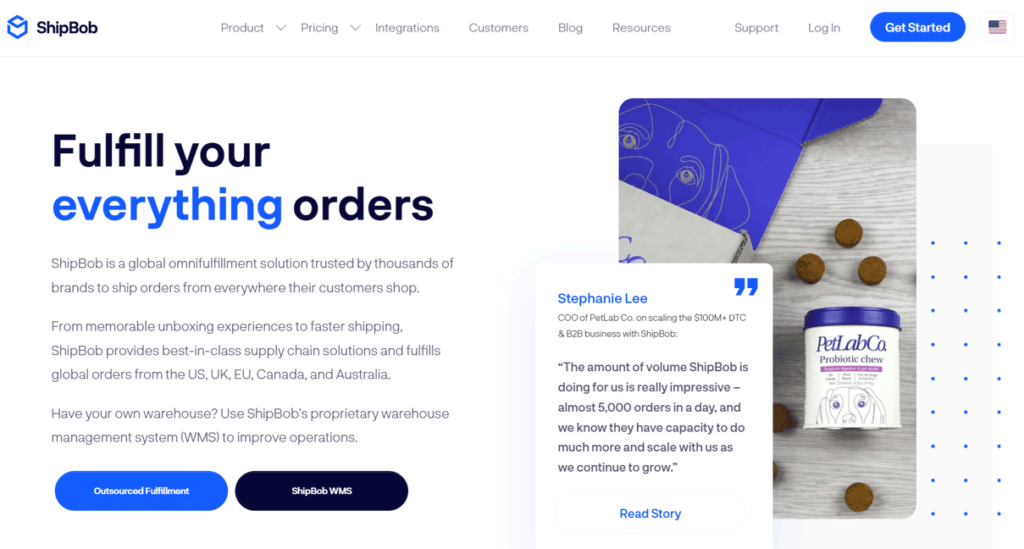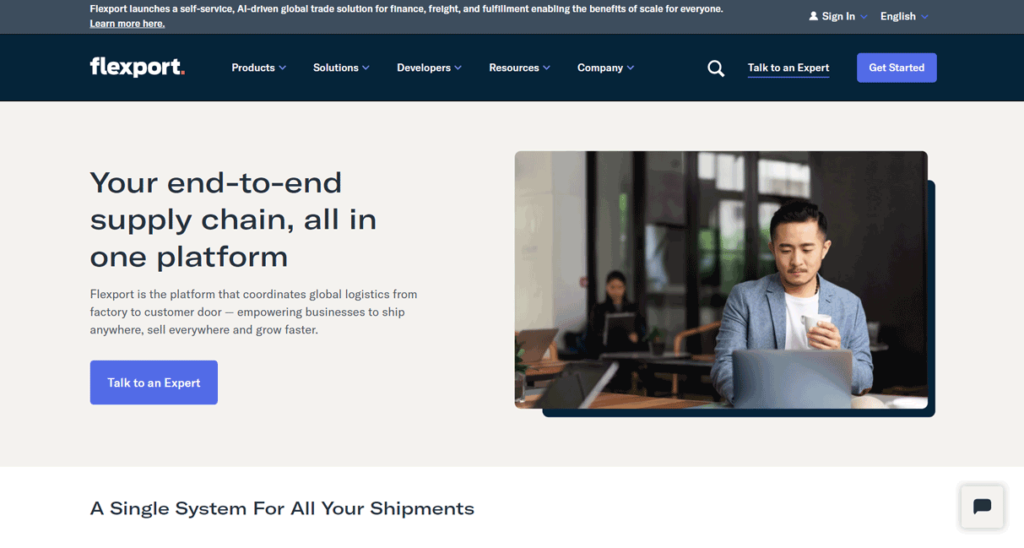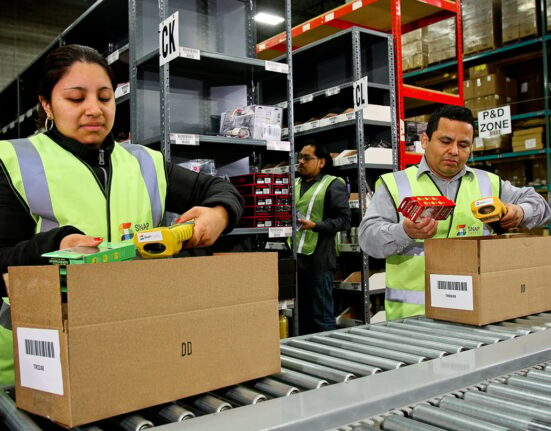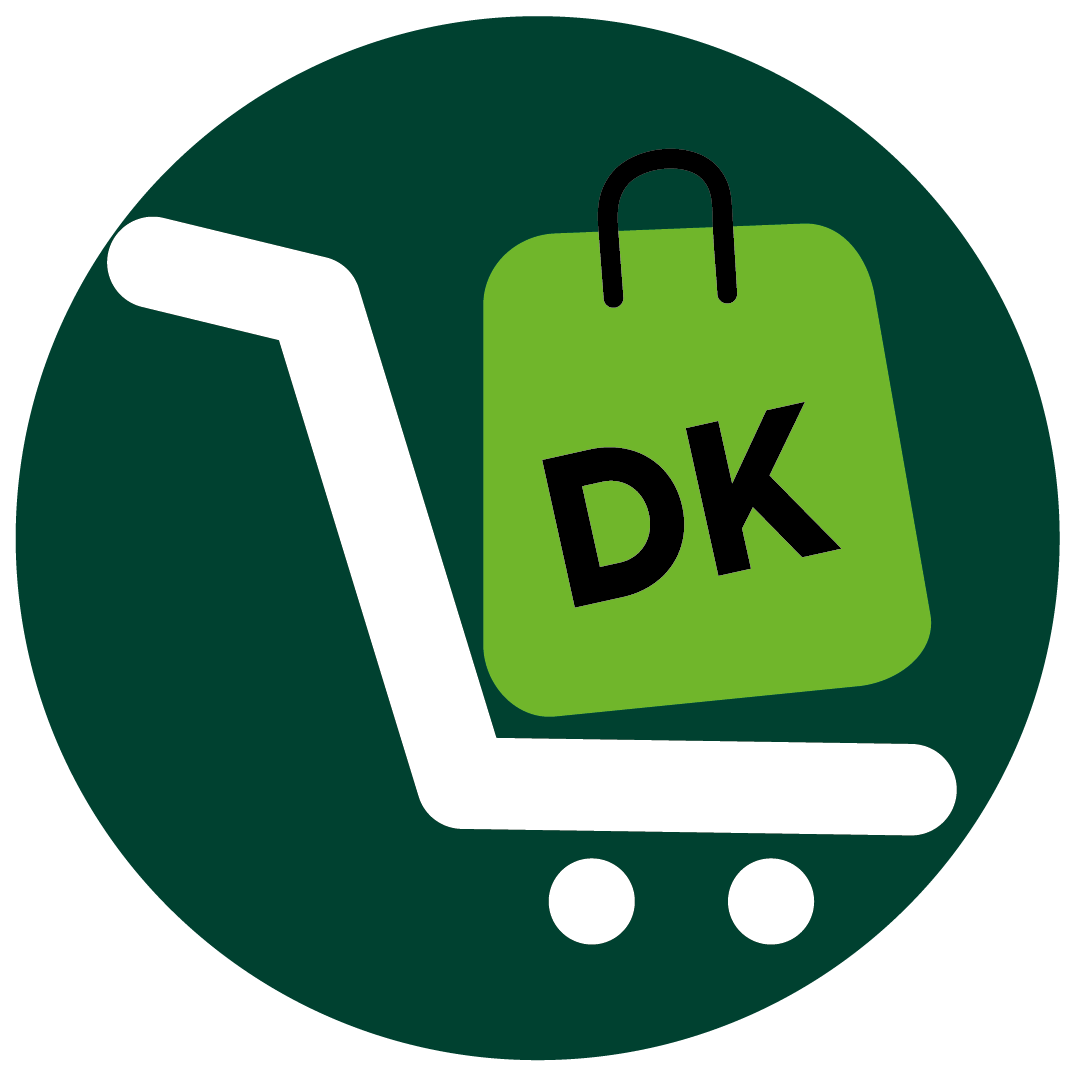Our Verdict
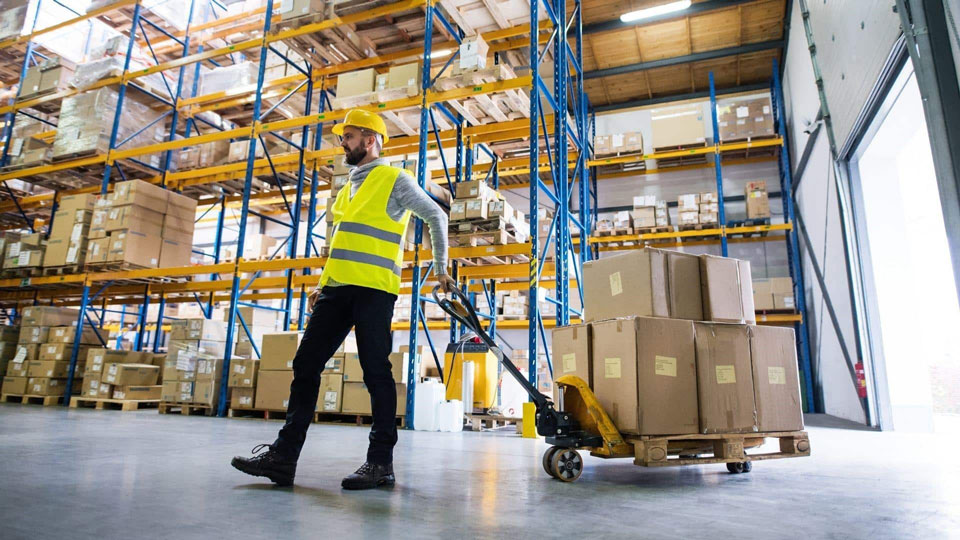
Deciding between ShipBob and Flexport hinges on your priorities. If you run a domestic business that is small and receives frequent orders, ShipBob’s flat-fee and efficient fulfillment shine best for you. But if your business ships internationally, deals with large volumes, or requires complex logistics, Flexport’s robust freight forwarding and wider service range offer a powerful solution. Consider your budget, shipment size, and international reach to find the path that leads to smoother deliveries and happier customers.
Why Choose Shipbob
Who Shipbob Is Best For
Choose ShipBob if you’re someone who desires a platform that:
- Streamlines shipping processes for small businesses
- Improves customer satisfaction through efficient shipping for companies
- Scales operations effectively for entrepreneurs
- Provides fast and reliable order fulfillment services for brands
Who ShipBob Isn't Best For
Think of other alternatives if you’re someone who:
- Has extremely low shipping volumes.
- Requires highly specialized shipping services.
- Runs a business that operates exclusively through dropshipping.
- Prioritizes cost over speed.
>>> MORE : ShipBob vs Red Stag Fulfillment
Why Choose Flexport
Who Flexport Is Best For
Embrace Flexport if you’re someone who:
- Does international trade
- Seeks streamlined logistics solutions
- Requires supply chain optimization
- Needs freight forwarding services
- Wants visibility and control over shipments
Who Flexport Isn't Best For
Think of other alternatives if you’re an entrepreneur who:
- Has minimal international shipping needs
- Requires specialized logistics solutions beyond Flexport’s scope
- Has strict budget constraints.
Main Differences
ShipBob | Flexport | |
Ideal For | ShipBob’s simplifies and enhances the fulfillment process for your ecommerce business. It achieves this by providing a range of services that handle the complex and often time-consuming tasks that have to do with getting your products to customers efficiently. ShipBob is best for:
| Flexport is ideal for simplifying and improving your business’s global supply chain by providing a comprehensive suite of services and technology. Use Flexport for:
|
Standout Features |
|
|
Pricing | ShipBob’s pricing structure is transparent and has several categories:
| Flexport doesn’t have a one-size-fits-all pricing structure. Instead, it focuses on customized quotes based on your specific needs. Check the breakdown below to have an insight into the company’s pricing strategy: Freight forwarding:
Fulfillment:
|
>>> PRO TIPS : Deliverr Fulfillment Review
Standout Features
ShipBob Standout Features
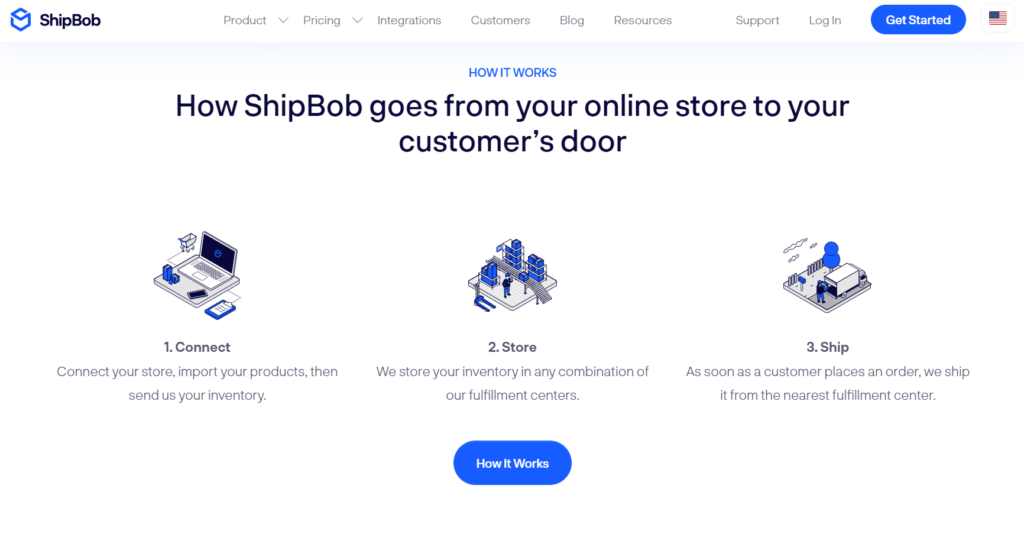
- Multi-warehouse network: ShipBob offers access to a network of fulfillment centers strategically present across the country, allowing for faster and more cost-effective shipping.
- Inventory management: Comprehensive tools for managing inventory across multiple channels give you real-time visibility and control over stock levels.
- Order fulfillment automation: Automation features streamline the fulfillment process, reducing errors and increasing efficiency.
- Integration capabilities: ShipBob’s seamless integration with popular ecommerce platforms and tools simplifies your order processing and data synchronization.
- Transparent pricing: With ShipBob’s clear and transparent pricing structure with no hidden fees, it is easier for you to budget and plan.
- Dedicated support: The platform’s responsive customer support team is available to assist with setup, integration, and ongoing operations.
Flexport Standout Features
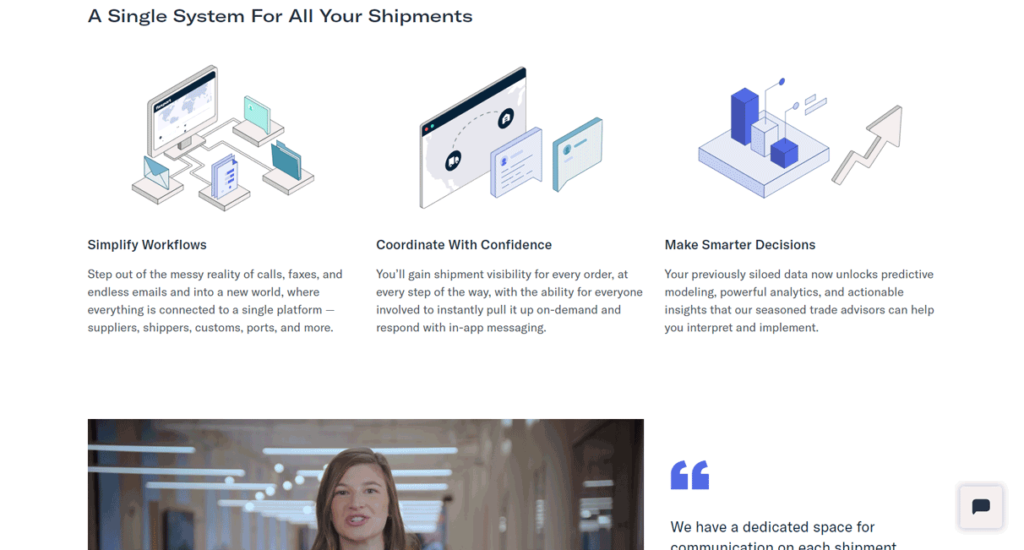
- Offers a digital platform: Flexport provides a digital platform that streamlines the complexities of international trade where you can seamlessly manage your supply chains more efficiently.
- Support end-to-end visibility: You can track shipments in real-time through Flexport’s platform, gaining visibility into every step of the logistics process from origin to destination.
- Does supply chain intelligence: Flexport offers data-driven insights and analytics to help you optimize your supply chain operations, make informed decisions, and mitigate risks.
- Fosters compliance with customs Flexport helps you navigate the complexities of customs regulations and compliance requirements across various countries, ensuring smooth customs clearance processes.
- Offer top-notch customer support: Flexport provides dedicated customer support to assist you with your logistics needs, offering personalized assistance and solutions.
- Provides collaborative platform: The company facilitates collaboration among supply chain partners, enabling seamless communication and coordination to improve efficiency and reduce errors.
Pros and Cons of Shipbob
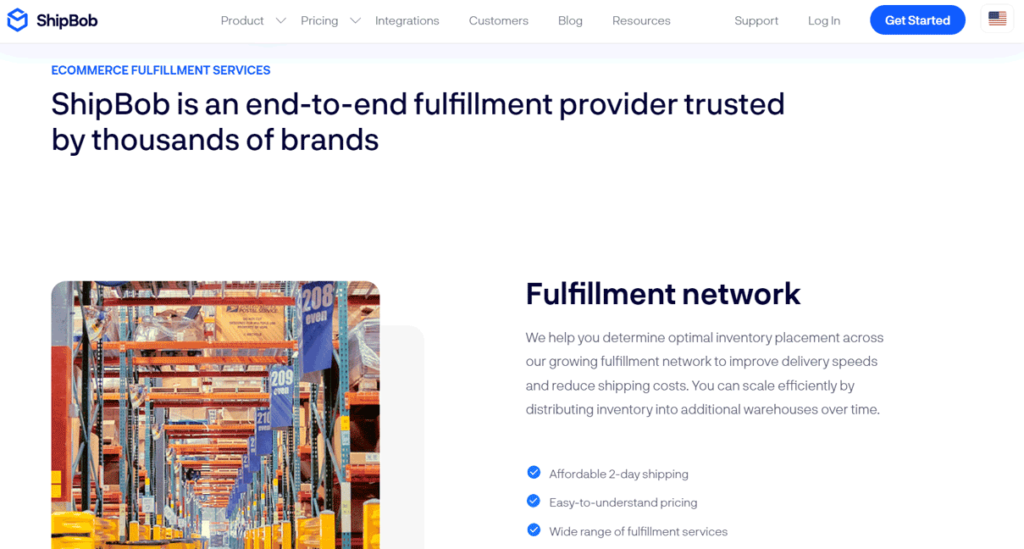
- Pros
- Simplifies order fulfillment process
- Provides inventory management tools
- Offers multiple shipping options
- Integrates with popular e-commerce platforms
- Provides real-time order tracking
- Cons
- Incurs higher fulfillment fees for small businesses
- Limits international shipping capabilities
- Complicates pricing structure
- Is potential for occasional delays in shipping
- Varies in customer service response time
Pros and Cons of Flexport
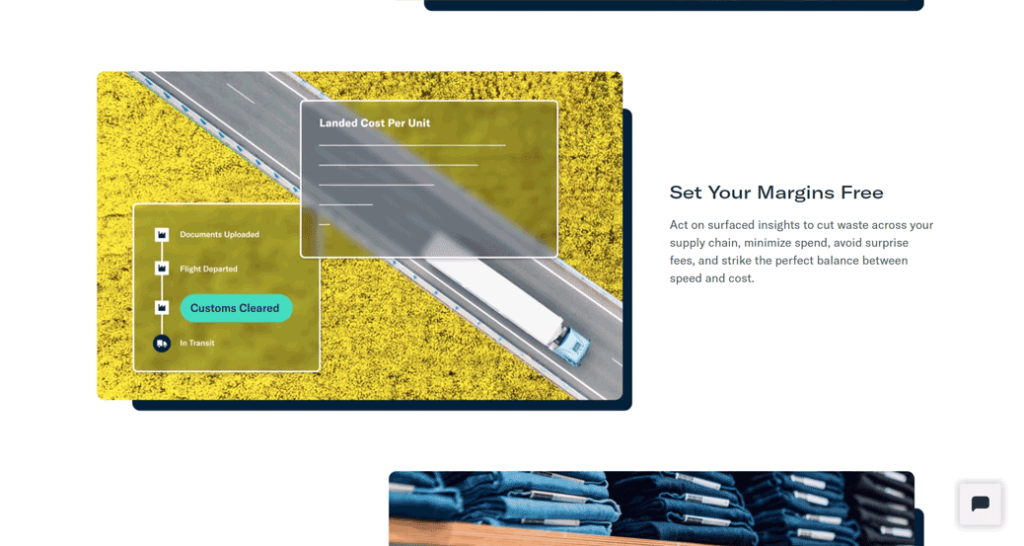
- Pros
- Streamlines logistics processes with a digital platform
- Provides end-to-end visibility of shipments
- Offers data-driven insights for supply chain optimization
- Assists with customs compliance
- Delivers dedicated customer support
- Facilitates communication and coordination through a collaborative platform
- Implements transparent pricing models
- Cons
- Results in higher costs compared to traditional freight forwarding services
- Relies on technology, potentially leading to disruptions if there are technical issues
- Has limited physical presence in some regions, affecting local support and operations
- Requires training for effective use due to platform complexity
- Depends on internet connectivity for platform access
- Raises potential privacy and security concerns related to data sharing on the platform
>>> GET SMARTER : Deliverr vs FedEx Fulfillment
Customer Reviews
ShipBob receives an average rating of 3.4-star based on 623 customer reviews while Flexport attracts a great rating of 4.1-star based on 70 customer reviews on TrustPilot. You can’t really rate Flexport above ShipBob based on customer reviews on TrustPilot. Yes, Flexport receives a great rating of 4.1-star compared to ShipBob’s average rating of 3.4-star but when you consider the number of customers that pass the reviews, Flexport is way behind ShipBob.
Competitors
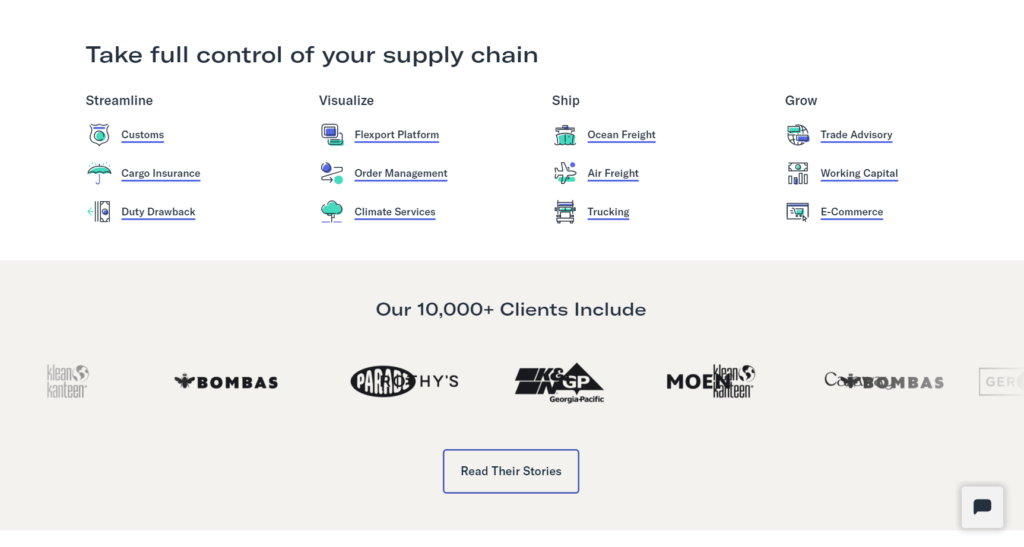
Fulfillment by Amazon (FBA)
Fulfillment by Amazon (FBA) is a service Amazon offers that enables you to store your products in Amazon’s fulfillment centers. Once you enroll in FBA, you send your inventory to Amazon’s warehouses, where the service provider stores, picks, packs, and ships the items to your customers when they place orders.
Amazon takes care of all aspects of order fulfillment, including customer service and returns handling. FBA also offers additional benefits such as access to Amazon Prime customers, who receive free two-day shipping on eligible products, and access to Amazon’s global fulfillment network, which allows you to reach customers worldwide with ease. Overall, FBA simplifies the logistics of selling on Amazon, allowing you to focus on growing your business while Amazon handles the operational aspects of order fulfillment.
Rakuten Super Logistics
Rakuten Super Logistics (RSL) is a third-party logistics provider popular for its comprehensive suite of fulfillment services tailored to ecommerce businesses. With a focus on efficiency and scalability, RSL offers warehousing, order fulfillment, shipping, and returns management solutions designed to streamline your logistics process. RSL’s network of strategically present fulfillment centers across the United States enables you to reach customers quickly and cost-effectively.
The company leverages advanced technology and automation to optimize inventory management and order processing, ensuring timely and accurate delivery of orders. Additionally, RSL provides transparent pricing and personalized support to help you meet your fulfillment needs and grow your ecommerce operations.
Easyship
Easyship is a comprehensive shipping platform that simplifies the shipping process for your ecommerce enterprise. With Easyship, you can access a wide range of shipping solutions from various couriers, allowing them to compare rates, delivery times, and services to find the most cost-effective and efficient shipping options for their specific needs.
The platform offers seamless integration with popular ecommerce platforms, enabling you to sync orders, print labels, and manage shipments effortlessly. Additionally, Easyship provides tools for order tracking, customs clearance, and duty calculation, ensuring smooth international shipping processes. Its user-friendly interface and transparent pricing structure make it a valuable tool to streamline your shipping operations and provide a superior customer experience.
Pro Tips
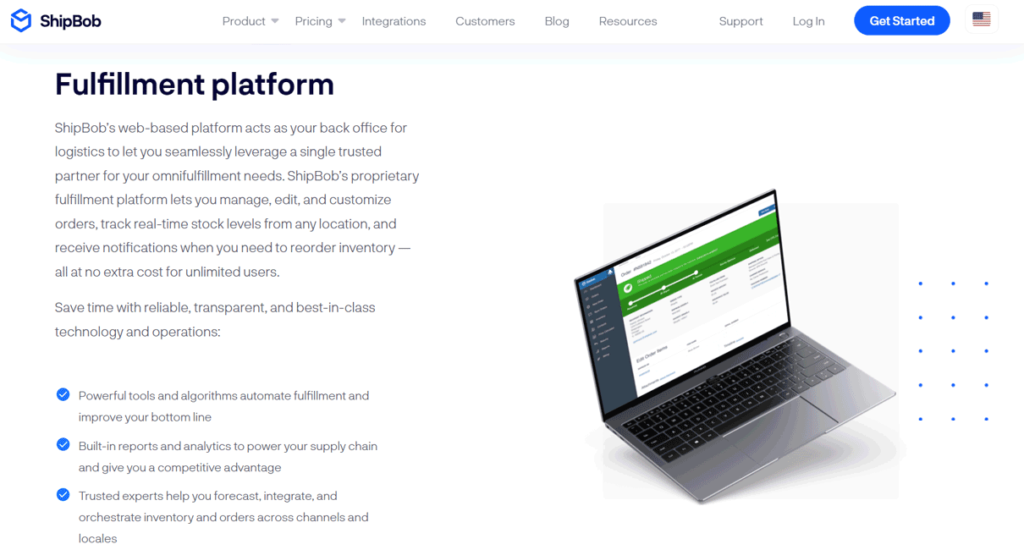
Understand your needs: Evaluate your specific logistics requirements, including shipping volume, destinations, and timeline. ShipBob is more suitable for ecommerce businesses needing fulfillment services, while Flexport specializes in global freight forwarding and logistics.
Consider scalability: If you anticipate significant growth in your business, consider the scalability of each platform. ShipBob offers fulfillment services tailored for small to medium-sized businesses, while Flexport caters to companies with complex international shipping needs.
Assess cost structures: Compare the pricing models of ShipBob and Flexport to determine which aligns better with your budget and shipping volume. Consider factors such as fulfillment fees, shipping rates, and additional service charges to make the right decision.
Evaluate technology integration: Look into how well each platform integrates with your existing systems, such as ecommerce platforms, inventory management software, and ERP systems. Seamless integration can streamline operations and improve efficiency.
Seek customer feedback: Research customer reviews and testimonials for both ShipBob and Flexport to gauge user satisfaction and experiences. Pay attention to aspects like reliability, customer support, and overall service quality to make a more informed choice.
Recap
When considering ShipBob versus Flexport, it’s essential to think about what you need for your business. If you’re running an ecommerce operation and require reliable fulfillment services tailored to your scale, ShipBob is the way to go. However, if your focus is on managing complex international shipments with end-to-end visibility and compliance support, Flexport better suits your needs. As you weigh the options, keep in mind factors like scalability, cost structures, technology integration, and feedback from other users to ensure you make the right choice for your business’s logistics.



